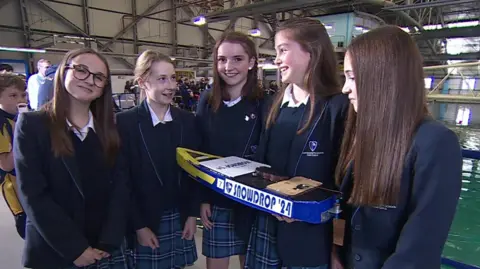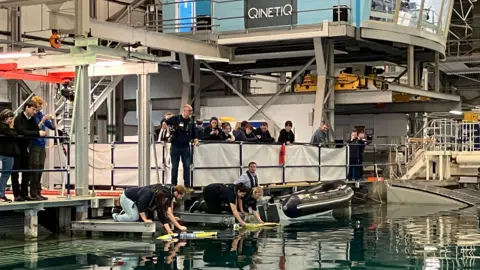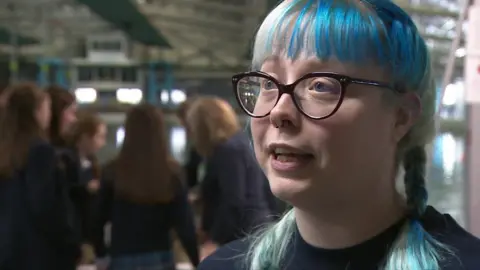Aspiring engineers build and race model speedboats
 BBC
BBCYoung aspiring engineers have built their own mini speedboats and tested them out at a high security facility.
School pupils from across Hampshire, Dorset and the Isle of Wight raced their model vessels at Haslar Marine Technology Park, in Gosport.
Opened more than 60 years ago by the late Prince Philip, Duke of Edinburgh, the site was primarily used for Royal Navy vessels.
It is now owned by defence company QinetiQ, which said it hoped its powerboat challenge would inspire school children to pursue a career in science or engineering.

About 80 children from 11 secondary schools took part in the challenge and Friday's race.
Beatrice and Evelyn, from Bournemouth School for Girls, said it was a great way to test their engineering skills.
Beatrice said of her vessel: "It's not been in the water before and, so far, it is faring pretty well against the others."
Evelyn said she hoped to pursue a career in engineering, adding that she would "like to work for Nasa".

The facility is about 400ft (122m) long, 18ft (5.5m) deep and holds 40,000 tonnes of chlorinated freshwater.
Chris Richardsen, principal consultant at QinetiQ, said the site had a reputation for being "secretive" because it had worked on Royal Navy vessels over the years.
"But now it's open to all clients... we test models of ships and submarines, typically around five metres in length," he said.
The event was organised by Kate Mace, project lead at Haslar, who said she felt it was important to "think about the next generation of scientists".
She said: "If we don't actually build the engineers that we need in the future we are never going to have them.
"A previous contestant, who took part in the powerboat challenge has actually gone on to submarine race and they have now got a job at QinetiQ."
You can follow BBC Hampshire & Isle of Wight on Facebook, X (Twitter), or Instagram.
